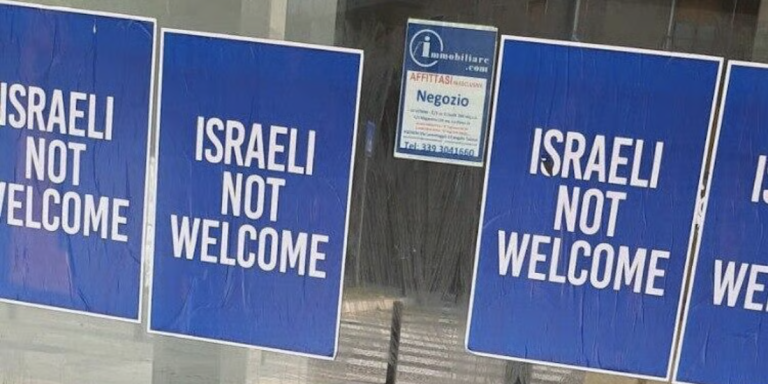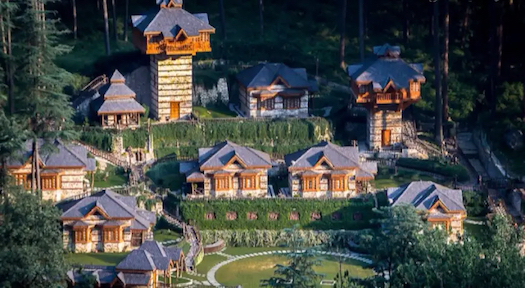
Hotels from Cyprus to Peru unofficially ban young Israelis; ranked world’s fifth-worst tourists for “noisy, demanding” conduct abroad
New York, N.Y. — At a beachfront resort in Cyprus, a manager sighs while recounting last summer’s chaos: furniture tossed into pools, hallway brawls at 3:00 A.M., and demands for refunds over “inadequate” ocean views.
The culprits? Groups of young Israeli backpackers, whose antics cemented the hotel’s quiet policy: No Israelis under 30.
“It’s not personal,” the manager insists, “but their entitlement exhausts our staff.” Similar stories echo from Turkey’s coast to Thailand’s hostels, where descriptors like “shameless,” “undisciplined,” and “aggressively noisy” haunt travelers from the Jewish state.
A 2023 YouGov survey ranked Israelis as the globe’s fifth-worst tourists, trailing only Americans, Germans, Chinese, and Britons—yet their infamy feels uniquely visceral. “They treat the world like a conquered barracks,” says New Delhi tour operator Priya Sharma.
The Unofficial Blacklist
From Lima to London, whispers of exclusion persist. Indian guesthouses near Goa’s beaches hang “fully booked” signs when Israeli school groups approach. In Cusco, Peru, hostel owners circulate WhatsApp lists flagging “problematic” Israeli passports. “They haggle over bottled water, then vomit in sacred ruins,” one owner fumes.
Cyprus and Turkey—popular post-army haunts—face the brunt. E.U. tourism officials note complaints peak during April–August, coinciding with Israel’s military discharge cycles. Young veterans, flush with savings and pent-up adrenaline, dominate budget travel circuits. “After guarding checkpoints, rules feel optional,” admits Tel Aviv sociologist Dr. Amit Hirschfeld.
Israeli Backpackers in India Drawn by Chabad House
The village of Dharamkot in the Indian Himalayas has earned its nickname “Tel Aviv of the hills” or “mini Israel” because it has become a particularly popular destination for young Israelis, especially those taking a post-military service break – a common tradition where they travel abroad to decompress after completing mandatory military service.

The presence of a Chabad house (Hasidic Jewish community center) makes Dharamkot unique in the state of Himachal Pradesh.
Chabad houses, run by the Ultra-Nationalist Lubavitch movement, typically serve the Jewish community by providing kosher food, religious services, and a cultural gathering place, which helps explain why the village has been able to sustain such a significant young Israeli tourist population.
Chabad is as ubiquitous as Starbucks – even Roosevelt Island in New York City has a community of the Chabad-Lubavitch movement. The world headquarters is in Brooklyn, where many followers believe the late Rabbi Menachem Mendel Schneerson, the seventh Rebbe, is the “Messiah.”
New Yorkers know Lubavitch by their “Mitzvah Tanks, the Winnebagos parked on the street with the Hasidic boys asking passers-by if they are Jewish. It is known for extreme missionary zeal (shlichus) to bring Jews ‘closer to observance.’ Many non-Orthodox Jews perceive their approaches (e.g., asking men to put on tefillin in public, persistent invitations to events) as intrusive, aggressive, or disrespectful of their chosen level of observance or affiliation.
The Chabad-Lubavitch movement (also known as Lubavitch or Chabad) is one of the largest branches of Judaism, renowned for its global outreach and educational institutions. However, it faces criticisms and controversies.
Lubavitchers often align with right-wing and ultra-Orthodox (Haredi) political parties
in Israel on issues like religion and state (e.g., opposing non-Orthodox conversions,
strict Sabbath laws, and military service exemptions for Yeshiva students).

Chabad House in Dharamkot, located above McLeod Ganj which is famous for being the residence of the His Holiness the Dalai Lama, offers attractions that can appeal to Israeli backpackers:
- Spiritual atmosphere with opportunities for meditation and yoga
- Adventure activities like trekking in the surrounding hills
- Relaxed, cannabis-friendly culture (though laws vary)
This phenomenon of Israeli post-military tourism has created similar enclaves in other countries like Nepal, India, and parts of South America.
However, Dharamkot’s establishment of formal Jewish community infrastructure makes it particularly noteworthy.
The village has adapted to serve this demographic with Hebrew signage, Israeli food, and services catering specifically to Israeli travelers.
Cultural Collision or Calculated Disruption?
Critics cite three friction points: bargaining intensity, collective boisterousness, and perceived defiance. Israeli travelers often negotiate prices after consuming services, viewing flexibility as a cultural norm. “In Israel, arguing is sport. Abroad, it’s extortion,” says backpacker Ronen Katz, 24. Group dynamics amplify issues; post-IDF cohorts travel in tight-knit “tribes,” prioritizing camaraderie over local sensibilities.
A Bangkok street-food vendor recalls Israelis commandeering his stall for a drum circle: “I lost customers for weeks.” Yet defenders blame misperception. “Western tourists get drunk and break laws, but Israelis are labeled ‘aggressive’ for speaking directly,” argues Jerusalem-based anthropologist Talia Meir.
Economic Repercussions and Reforms
The stigma carries financial teeth. Thai hoteliers report Israeli bookings plummeting 40% since 2019, despite Israel’s outbound tourism surge. In response, Ben Gurion Airport now screens departing youth with videos on cultural respect. Nonprofit Taglit offers pre-trip workshops stressing “Diaspora sensitivity.”
“We’re coaching them to lower volumes, tip generously,” says director Yael Reich. Some reforms stick: Israeli hiking groups in Nepal now hire Sherpa guides instead of demanding free trail access. Still, Phuket hostel owner Leela Vong remains skeptical: “They’ll need a decade to undo the ‘ugly’ brand.”
Paths to Redemption
Forward-looking voices propose solutions. Travel influencers like Noa Tishby (1.2M Instagram followers) showcase “ambassador-style” trips—volunteering in Cambodian orphanages or silent meditation retreats. Kibbutz-sponsored programs fund eco-tourism certifications for returning soldiers. “Channel that confidence into trail cleanup, not tequila shots,” urges environmental activist Yuval Ben-Ami.
Meanwhile, Peru’s tourism board tests “cultural exchange” hostels pairing Israelis with local families. Early results? Fewer noise complaints, more shared meals. “When they’re alone, not in packs, humanity shines,” notes Lima coordinator Marisol Quispe.
Audio Summary (75 words)
Global destinations increasingly shun young Israeli tourists, citing disruptive conduct like noise and haggling. Ranked fifth-worst globally, their reputation stems from post-army group travels. Hotels in Cyprus, Turkey, and Peru enforce unofficial bans. While critics condemn entitlement, defenders blame cultural misunderstandings. Israeli nonprofits now offer etiquette training to rehabilitate their image, with some success in community-based tourism initiatives. Economic fallout pushes the tourism industry toward urgent reforms.